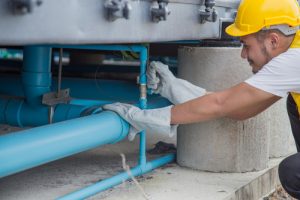
U.S. Sen. Shelley Moore Capito (R-WV) on Jan. 25 introduced the bipartisan Innovative Water Workforce Development Act, S. 2346, a bill to ensure that America has plenty of skilled water utility workers in coming years to provide a safe and operational water infrastructure.
“Today, skilled workers in the water utility management field are retiring at a higher rate than they’re being hired. This is particularly true in rural communities like those in West Virginia,” Sen. Capito said.
During the next 10 years, about 23 percent of the overall U.S. workforce will retire, according to Capito’s office, compared to roughly 37 percent of water utility workers and 31 percent of wastewater utility workers retiring over the same period. According to the bill, the median age of water utility workers is 48 years, which is six years older than the median age of the national general workforce population.
If enacted, S. 2346 would direct the U.S. Environmental Protection Agency and the Army Corps of Engineers to develop a competitive grant program supporting workforce development in the field. These grants would be targeted to areas having a high retirement rate or a high unemployment rate in the field, among other criteria.
The bill also would offer internship and apprenticeship opportunities and encourage federal grantees to work with local training and educational institutions and labor groups to help prepare youth for post-secondary water utility careers, in addition to other provisions.
U.S. Sen. Cory Booker (D-NJ) joined Capito in introducing the bill.
Water utility jobs, including apprenticeships, are also good-paying jobs, according to text of the bill, and can pay considerably more than other work. That’s an important enticement for building a pipeline of workers who will be ready to replace upcoming retirees, said Sen. Booker. “Jobs in the water and wastewater sector can pay more than three times the minimum wage — our bill will make sure they’re available to more people,” he added.
Capito also addressed a unique challenge facing her home state regarding water utility workers.
“With a skilled water management workforce, we can improve and maintain healthy communities — particularly in former coal camps with intractable water systems — across West Virginia,” said the senator, referring to water systems defined in the bill as those serving fewer than 1,000 people with an owner or operator that has essentially abandoned the system, failed to maintain it, or has defaulted on related financial obligations.
S. 2346 awaits action by the Senate Environment and Public Works Committee.



